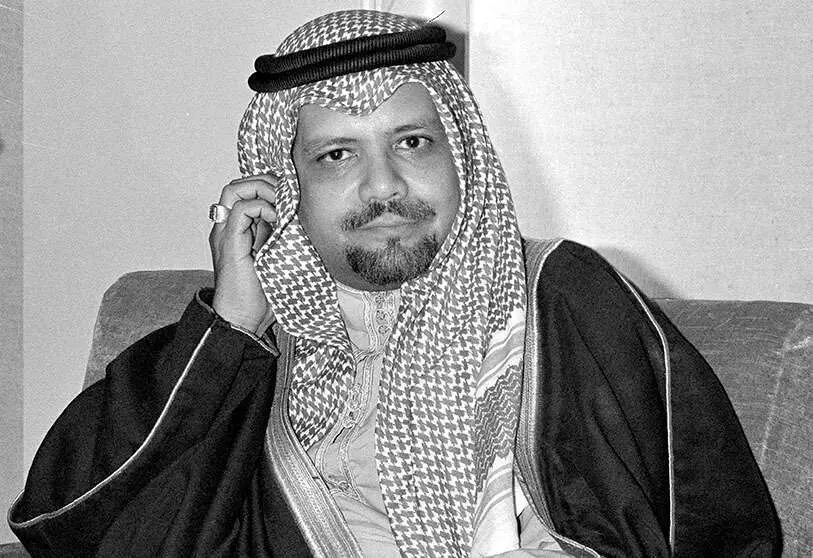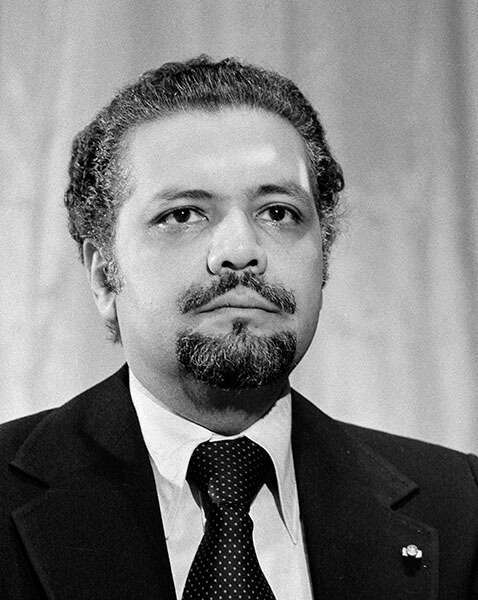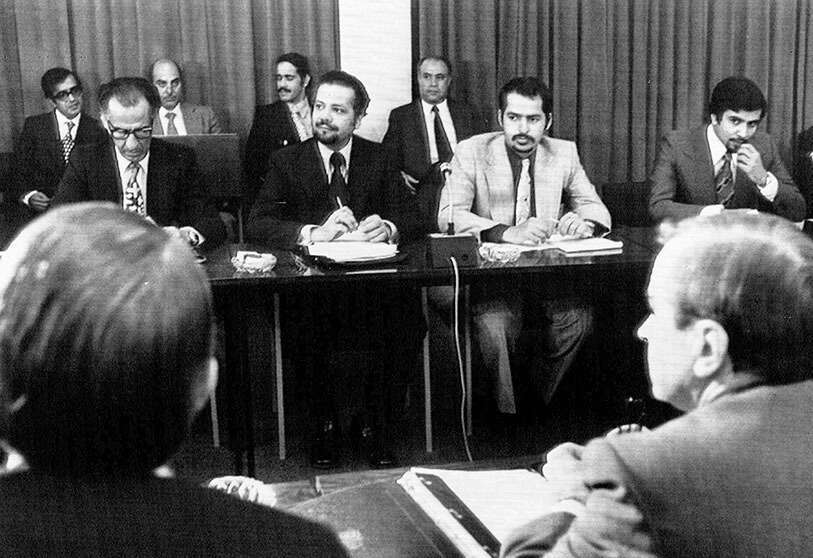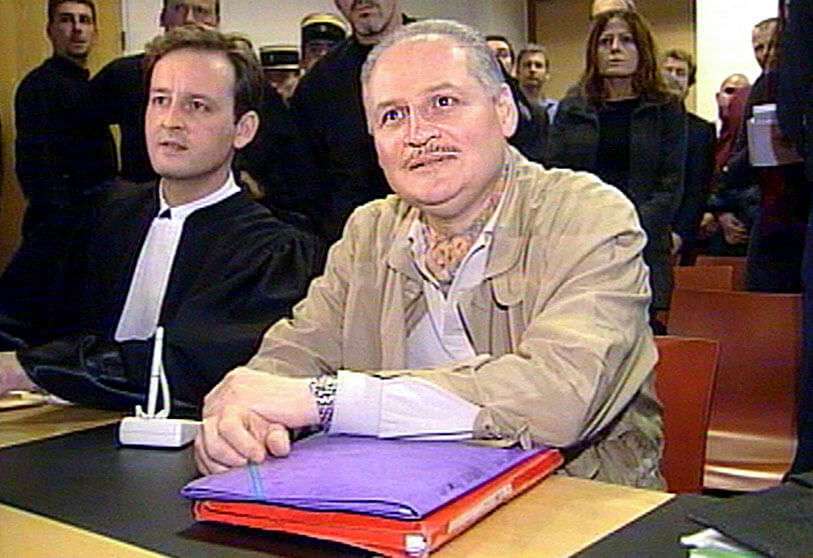Zaki Yamani, a visionary who played a vital role in the 1973 oil crisis, dies at 90

Ahmed Zaki Yamani, a key figure in the history of oil and Saudi Arabia, has died in London at the age of 90. Yamani was the Gulf state's longest-serving oil minister and the man behind the oil embargo after the 1973 Arab-Israeli war.
Yamani was appointed oil minister in 1962, replacing Abdullah Tariki, a founding member of OPEC. From his position, he promoted Arab interests and effectively negotiated oil production and prices, becoming a dominant figure in setting production quotas in world markets.
Born in Mecca in 1930, he trained as a lawyer in Cairo, then decided to complete his studies at New York University School of Law and earned a master's degree at Harvard Law School. Two years after completing his studies, he was hired by the Saudi royal family as an advisor to the then Crown Prince Fahal bin Abdulaziz, paving the way for a rapid rise to head the oil ministry in 1962, which he headed until 1986.

Notably, Yamani was the first Saudi representative on OPEC's board of governors in 1961. From his post, he became known not for the hysteria that accompanied years of turmoil across the Middle East, but for an ever-calm negotiating style that Saudi ministers after him sought to emulate.
One of the key moments that marked his career was the 1973 oil crisis. The US, under President Richard Nixon, moved to support Israel in the aftermath of the 1973 Arab-Israeli war, in response to which Arab OPEC producers agreed to reduce their supply by 5 per cent a month. But when Nixon continued his support, the decision gave rise to what would become known as the "oil weapon": a total embargo on the US and other Western countries.
This decision, promoted primarily by Yamani, caused prices in the US to rise by 40 percent, leading to a shortage of gasoline and a succession of images of long lines at the pumps. During his tenure, Saudi Arabia also began to increase its stake in the then foreign-owned Aramco oil company, in a gradual process that allowed the country to eventually take full control of the company.

During his time at the helm of the oil ministry, Yamani experienced two episodes of great significance. One of them, of great historical impact, was the assassination of King Faisal in March 1975, at the hands of one of his nephews. In addition, in December of the same year, he was one of the hostages at OPEC headquarters in Vienna, an attack in which three people were killed and in which 11 OPEC ministers and dozens of others were imprisoned. The attack was carried out by a pro-Palestinian armed group, led by Illich Ramirez Sanchez "Carlos the Jackal".
The initial plan was to take Yamani and Iranian minister Jamshid Amuzegar to Baghdad and execute them. The hostages were eventually released in Algiers after lengthy negotiations. Yamani recounted the experience to his biographer, Geoffrey Robinson: "It was a strange thing, but we seemed to be sitting there talking as if we had become friends.... He talked to me a lot knowing that he was going to die". He described him as a "ruthless terrorist who operates with cold blood and surgical precision". From then on, Yamani had to travel with an entourage of bodyguards everywhere he went.
But his career as oil minister was to be thwarted by the arrival of Saudi King Fahd, with whom he was rumoured to be on bad terms. Saudi King Fahd dismissed Yamani in a terse statement released by the Saudi Press Agency. At the time, Yamani was believed to have disagreed with the king's insistence that OPEC develop a permanent production quota system and that the kingdom receive a larger share of the total.

Yamani opposed exorbitant oil price increases, believing that it was preferable to maintain lower prices and extend foreign dependence on Saudi oil. He maintained this position even years after leaving his post as oil minister, and after founding the Center for Global Energy Research (1986) in London, a company dedicated to energy market analysis.
During an interview in 2000, when shale oil was little known and renewables had yet to be developed, Yamani predicted that the technology would reduce oil consumption and increase production outside OPEC. "The Stone Age did not end because the world ran out of stone, and the Oil Age will end long before the world runs out of oil," he said.
Yamani was a great visionary when it came to the world of economics and oil. He managed to position his country internationally, giving it a position of power through his control of this precious resource, and he also managed to become the figurehead of OPEC.








